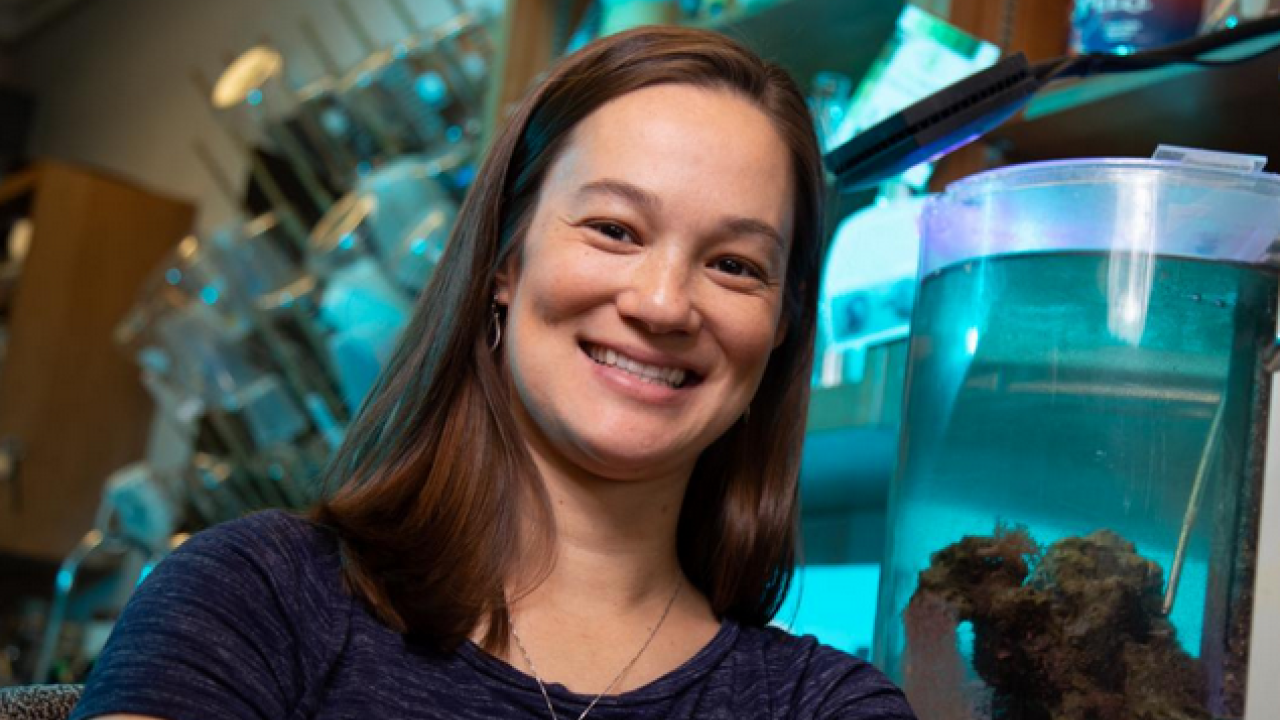
Sloan Fellowship Will Help New Faculty Rachael Bay Understand How Marine Animals Respond to Warming Temperatures
Assistant Professor Rachael Bay, Department of Evolution and Ecology and a Population Biology faculty member, learned to scuba dive far from the tropical environments conducive to coral reefs. She trained in a rock quarry located near Lake Erie in Ontario. Bay’s research and studies eventually took her to the coral reefs off Florida’s coast and in the lagoons of American Samoa and the Cook Islands in the South Pacific. As a PhD student at Stanford University, she combined her interests in marine science and computational biology to study the genetics behind thermal tolerance in corals. "We have pretty solid research saying that corals do acclimate to warmer temperatures," said Bay, noting that corals exposed to non-life-threatening warm temperatures seem to acclimate better than those that haven't been exposed to them. "That's been shown many times in several different species, but we also know, by looking at the bleaching record, that repeated bleaching events seem more likely to lead to mortality." Bay will continue teasing apart this delicate balance thanks to new funding support. She was recently selected as a 2019 Alfred P. Sloan Research Fellow in Ocean Sciences.
